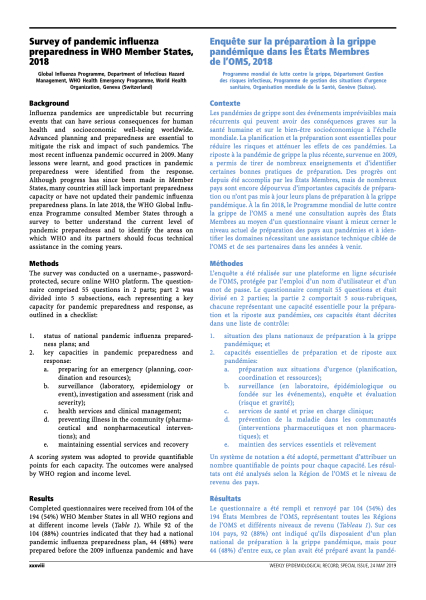Several disease outbreaks and health emergencies in Africa and their risk factors could be prevented or mitigated, but the health systems in many countries in the WHO African Region are still weak. The International Health Regulations (2005) (IHR) urge States Parties to develop capacities for prevention, early detection and timely response to public health threats; however, many countries in the African Region have not achieved sustainable IHR capacity or a resilient health system. The 2013–2016 Ebola virus disease (EVD) crisis and other health emergencies revealed the challenges encountered by countries in establishing robust surveillance systems for timely detection and effective response to health emergencies. The WHO Health Emergencies
programme (WHE) supports countries in assessing their IHR capacity and in preparing national action plans for health security (NAPHS) to address the gaps identified. We present progress made by Member States in preparedness and readiness and share lessons that could be useful to other regions in implementation of the 13th WHO General Programme of Work 2019−2023
(GPW13).
Area of work
Risk Analytics and Action Reviews (RAR)
EHS Theme
International Health Regulations capacity building for emergency preparedness
Published
May 24, 2019
Region
African Region

